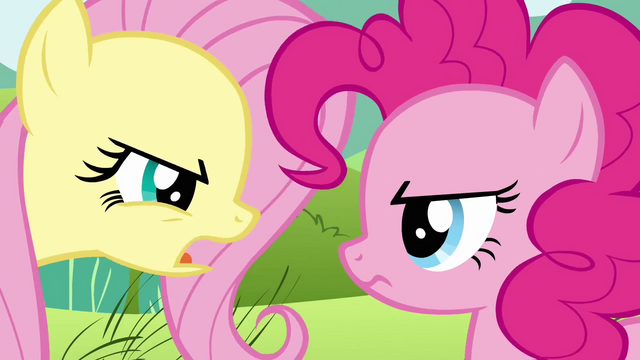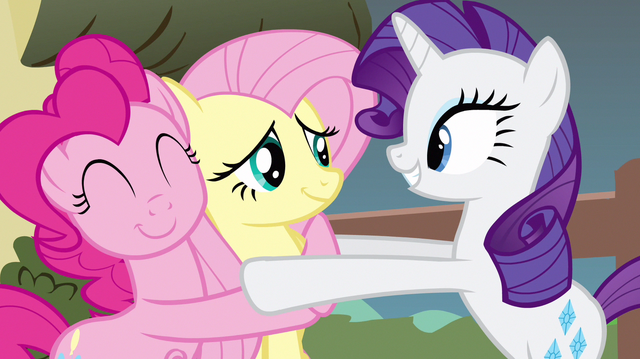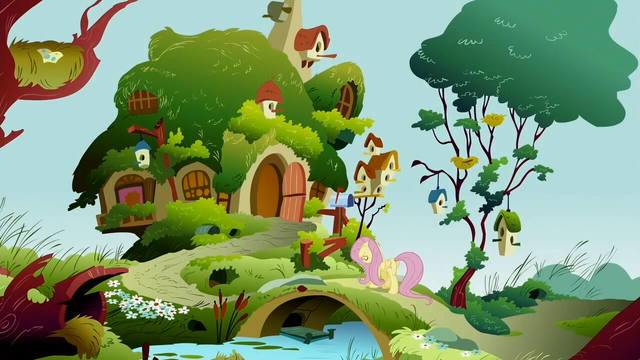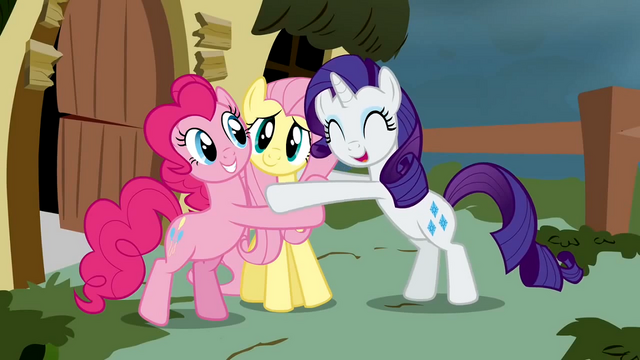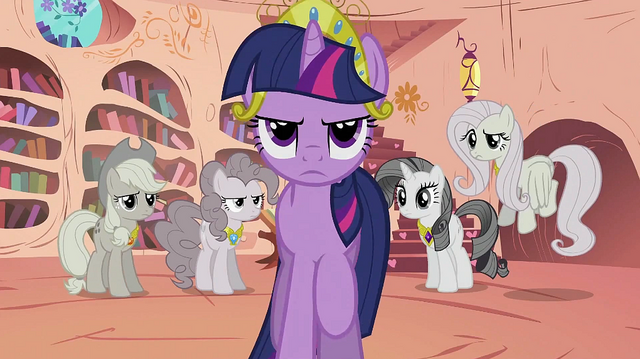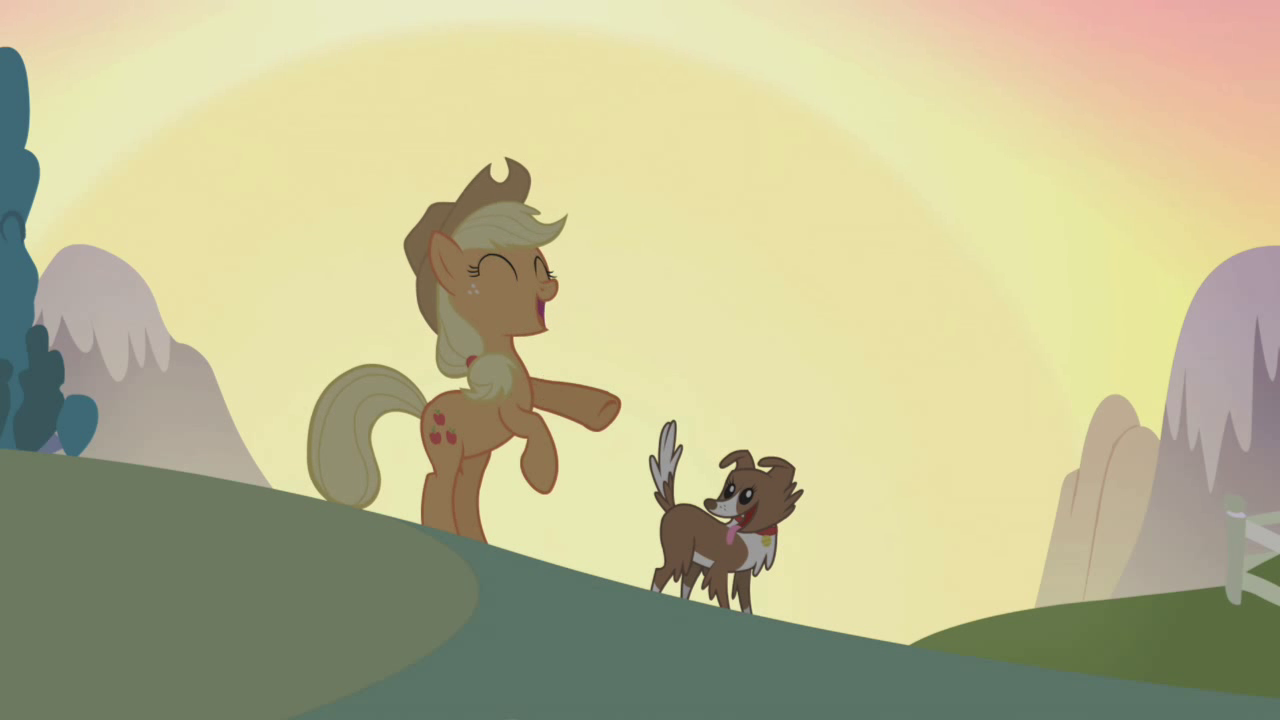 |
| Yehaaw! Ya'll hear that? Me and AJ are P.F.F. (Pony Friends Forever!) |
Wednesday, July 25, 2012
Huzzah!
Tuesday, July 24, 2012
Gilson on Aquinas on Accepting Truth Humbly
St. Thomas Aquinas was one of the latter, clear-sighted enough to know truth when he saw it, humble enough to bow to it in its presence. -- Etienne Gilson, The Unity of Philosophical Experience, 49
Other recommended reading on Aquinas:
-G.K. Chesterton, St Thomas Aquinas (free online version)
-Etienne Gilson, The Christian Philosophy of Thomas Aquinas (Brandon: "Still the best introduction to Aquinas you can get your hands on.")
-Brian Davies, The Thought of Thomas Aquinas (Ed Feser: "Probably the best single volume in print for anyone looking for an overview of the whole range of Aquinas’s philosophical and theological thinking.")
-Edward Feser, Aquinas
For peeping Thomists like me who've just discovered the Angelic Doctor, a good place to start is:
Timothy Mcdermott, ed., Summa Theologiae: The Concise Translation
Ralph McInerny, ed, Thomas Aquinas: Selected Writings
For the full Summa, there are a few choices: hardback/paperback, Kindle, and online.
Sunday, July 22, 2012
MLP: FiM Season 3 Preview: The Crystal Ponies
It recently came to my attention, glancing at the Derpy Hooves Facebook fan page, that a sneak preview of the third season of My Little Pony: Friendship is Magic surfaced at Comic-Con last week in San Diego. As far as I can make out, Princess Cadence will have a big role. But what will become of Princess Luna and the beloved fan-favorite Derpy Hooves? We will see...
Friday, July 20, 2012
Fluttershy and the Virtue of Friendliness: Part 2
Friendship Report: Aristotle
and Aquinas on Friendliness or Amiability
Well, I did like this episode.
It’s a bit fun to see Fluttershy acting out of character. However, what I find
more interesting is that “Putting Your Hoof Down” is a kind of a moral lesson
on the virtue of friendliness or amiability, as identified by the two prominent
virtue ethicists Aristotle and St. Thomas Aquinas.
 |
| Aristotle, Aquinas, and some guy named Plato |
Before I get to the specific virtue,
allow me some words on virtues in general. The Catechism of the Catholic Church tells us that:
1804 Human virtues are firm attitudes, stable dispositions, habitual
perfections of intellect and will that govern our actions, order our passions,
and guide our conduct according to reason and faith. They make possible ease,
self-mastery, and joy in leading a morally good life. The virtuous man is he
who freely practices the good.
The moral virtues are acquired by human effort. They are the fruit and
seed of morally good acts; they dispose all the powers of the human being for
communion with divine love.
Summarized roughly, the virtues
are dispositions towards doing the good, for morally right actions. A disposition
(or habitus in Latin) is a firmness
or stability in doing something, as opposed to random behavior – “A virtue is a
habitus that is always for good” as Aquinas says (ST 2-1.55.4). Therefore, somepony
who exemplifies the virtue of honesty, like Applejack, is disposed towards
telling the truth, instead of just sporadic truthfulness some of the time. (We
can get into the further issue of the consistency of AJ’s honesty in the series
but that’s another post for another day, not to mention it'll lead us back to that whole debate on the Catholic blogosphere a year ago on the definition of lying and whether lying is always wrong, which I think is the case.)
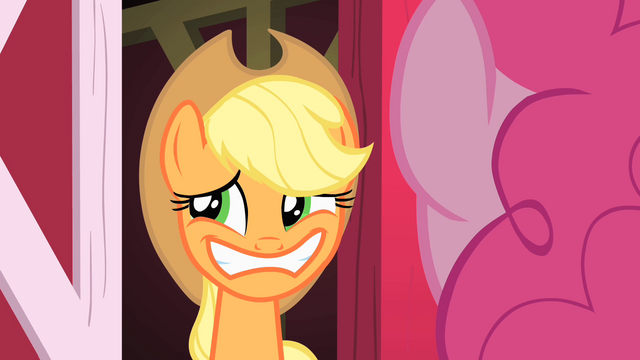 |
| AJ, be honest, have you told any lies lately? |
As virtues dispose us towards the
good, their opposites, vices, dispose us towards the bad. More specifically,
while virtues perfect our powers of the soul (the rational soul in us humans),
as Aquinas notes (ST 2-1.55.4), vices work against the perfection of our
powers.
Cultivating virtues is then just
like learning to ride a bike, you practice and practice until the action
becomes easy to do, or second nature.
Two further points, though. First,
it is important that the Latin term habitus
used by Aquinas translates as “disposition” rather than “habit,” as a
disposition, while firm once acquired, is still voluntary, that is, we freely
chose to exercise the action. Second, both Aristotle and Aquinas see the good
as the fulfilling of the end of something (my buddy DGD mentions “final causality”
in connection to MLP-related matters here). In the case of humans, rational
animals in Aristotle’s definition, the good for us is the perfection or fulfilling
of our rational nature; the virtues help us in the journey towards this end, which is happiness, be it intellectual contemplation in the case of Aristotle or the beatific vision for Aquinas.
Virtue theory usually divides the
virtues into the intellectual, moral, and theological, the first two
(potentially) acquirable by human effort and the third only attainable by God’s
grace (though for the Catholic all virtues require God’s help in some sense).
However, for the purposes of this post, we focus only on the moral virtues (or “cardinal
virtues”). The cardinal virtues divide into prudence, justice, fortitude, and
temperance. Prudence guides the other virtues and is a kind of moral common
sense that allows us to discern the right goods to purse along with the right
means. Justice is concerned with giving what is due (to both other men and God).
Fortitude is firmness in pursuit of the good. Temperance is a balance in
sensual pleasures, like food, drink and sex.
Since the virtue of justice
concerns giving what is due to our neighbor, and since humans are social
animals as Aristotle points out, it is of great importance what sort of
relationship we have with others in society (and with God). We owe a debt of honor of truthfulness in our words (honesty) and actions (friendliness), without which society could not survive (ST, 2-2.114.2). As Julie Davis of Happy Catholic blog reminds us, it all
boils down to following the commandant of Christ to love, to “Do to others
whatever you would have them do to you” (Matthew 7:12). The just man, then,
lives in harmony with his fellow man, which brings us back to friendliness, a
satellite virtue of justice…
Fluttershy the Element of Amiability
Among the moral virtues
considered by Aristotle is one to which he gives no name that deals with our
relations with other people, but can be called by us friendliness or amiability.
First, Aristotle considers two extremes or vices related to friendliness - obsequiousness
and disagreeableness:
Some men seem to be obsequious in association with others and in
interchange of words and deeds. They praise everything for the sake of
pleasantness, and never contradict anyone, being of the opinion that
unpleasantness ought to be avoided.
Others, on the contrary, always find fault, taking care to emphasize
anything unpleasant. They are called perverse and quarrelsome. (NE, IV, 816-817)
In other words, obsequiousness is
being a “doormat” or “pushover” with others, being overly eager to please and
not cause offense, especially in matters in which disagreement is necessary. While
with her general agreeable disposition Fluttershy is always in danger of this
vice, in “Putting your Hoof Down” she definitely slides over in obsequiousness.
At the start of the episode, when her dealings with other ponies call for her
to point out an injustice, she instead backs down, not wanting to displease
anypony.
On the other hoof, the opposite
vice of disagreeability doesn’t give a flying feather what others think, be it causing
offense, criticizing, and arguing at every opportunity. Therefore, the new
Fluttershy, fresh off her assertiveness training, is nasty towards the other
residents of Ponyville, even her own friends, harshly criticizing any mistakes,
flaws, or quirks that cross her path, regardless of what pain it may cause or of
the necessity.
Aristotle next tells us the mean
between the two extremes:
These habits being reprehensible, obviously the mean habit is
laudable—that habit according to which a person approves what he should and
also disapproves what he should. (NE, IV, 818)
Amiability or friendliness boils
down to being agreeable with others when necessary and disagreeable when necessary.
Aristotle further elaborates that the amiable man “aims to cause no offense and
to give pleasure” but “will refuse to give pleasure and will choose to cause
pain over what is dishonorable and harmful to himself or to the person doing an
injury or a great wrong” (NE, IV, 825). In other words, the friendly or amiable will usually
be pleasant around others and seek their good unless an injustice or an evil
performed by others calls him out to cause pain in the form of criticism or correction.
By the end of the episode, Fluttershy
returns to this mean (the old Fluttershy), no longer being a pushover who is
okay with everything or a “Flutterbitch” who fights everypony over every little
thing. As Rarity points out, “You can stand up for yourself without being
unpleasant about it,” which is the Element of Generosity’s way of saying that we
should be agreeable to others. But what is being agreeable to others other than
friendship or a sign of friendship? For friends seek and will the good of one another, and, thus,
sometimes it is necessary for a friend to cause another friend pain in the form
of disagreement or criticism if that friend should falter in the pursuit of the
good, but this is done out of amor amicitiae, the love that is friendship.
Or as Fluttershy tells us in her “Friendship
Report” letter to Celestia:
Sometimes it can be hard for a shy pony like me to stand up for myself,
and when I first tried it, I didn't like the pony I became. But I've learned
that standing up for yourself isn't the same as changing who you are. Now I
know how to put my hoof down without being unpleasant, or mean.
Other sources worth noting:
Brian Davies, The Thought of Thomas Aquinas
Peter Kreeft, Back to Virtue
Fluttershy and the Virtue of Friendliness: Part 1
Putting
Your Hoof Down: Character and Plot Overview
 |
| Fluttershy |
Before I get to the episode,
allow me a few words of introduction for the character of Fluttershy. She is
timid in temperament and extremely shy. In fact, she frequently seems
apologetic for even getting into a conversation (consider the number of times
she says “um, excuse me, you wouldn’t mind…”). Overall, she displays an extreme
sensitivity in her relations with the other residents of Equestria. Among the
Main Six, she exemplifies the Element of Kindness (or good will). She goes out
of her way to be agreeable to everypony and to avoid causing offense. Another
notable trait is her love of animals. She keeps several pets, including one
rather mischievous rabbit ironically named “Angel.” She enjoys singing with the
birds.
In short, Fluttershy is a very
likable character. In many ways, she reminds me of St. Francis of Assisi,
famous for his gentle nature and fondness for animals.
But, of course, Fluttershy is no
saint and, like the other Main Six, betrays flaws that sometimes lead to
conflict. As I mentioned before, she’s not very brave (even her own shadow
sometimes spooks her), the complete opposite of Rainbow Dash, who is daring if
not foolhardy. (In Fluttershy’s defense, when pushed to the brink, she unveils
her special ability: her stare.)
 |
| You wouldn't want to be on the business end of this... |
In “Putting your Hoof Down,” FS’s
agreeable disposition morphs into the vice of obsequiousness, which she
unfortunately attempts to overcome by taking on the opposite extreme of
disagreeability. Now, Fluttershy has had a few outbursts before, but these
moments were rare. In addition, the short-lived turn to cruelty instead of
kindness in “The Return of Harmony” came entirely from
Discord’s influence (notice that she didn’t initially fall for his trickery).
A
Summary of the Plot and Some Random Commentary
The episode begins with
Fluttershy in her secluded cottage feeding all her pets – and she does indeed
have many pets! She keeps several rabbits, rats, skunks and squirrels, but one
rabbit in particular, named “Angel,” is rather close to the yellow pegasus. He’s
also a picky eater and the local grub just isn’t cutting it for him, so he demands
that Fluttershy make him a special salad with a cherry on top. Since FS doesn’t
want Angel “to starve,” she sets out to the marketplace in search of the
necessary ingredients.
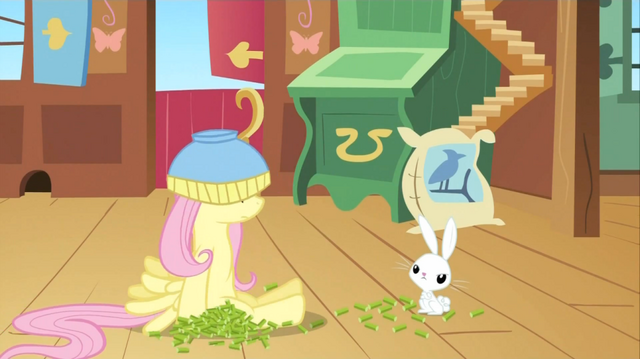 |
| Angel the Bunny, aka Mr. Picky Pants |
Fluttershy isn’t in the marketplace
for very long until we start seeing hints of her problem. She’s waiting in line
to buy some asparagus and several ponies begin taking advantage of her
unfailing politeness to cut in line. Fluttershy isn’t fond of confrontations so
she avoids complaining. Then when two valley ponies from somewhere in Las Pegasus spring up as if out of the ground in front of her, Fluttershy finally
appears to summon the courage to stand up for herself. But when the valley
ponies start talking in their west coast speak about having their “personal
space” invaded, FS just backs away.
 |
| "And then I was, like, OMC!" |
Luckily, just nearby Rarity and
Pinkie Pie, two members of the Main Six clique, happen to be hanging out and
they watch all the events unfold. Rarity offers some advice, telling Fluttershy
to “stop being such a doormat, a pushover.” Both Rarity and Pinkie Pie then
start trying to teach by example. Rarity uses her marely charm to convince some
skinny nerdy stallion to part with the last asparagus. Next, Pinkie Pie uses her Bugs Bunny negotiating skills to convince a seller into bringing down the price for tomatoes. Of
course, the usefulness of this lesson for Fluttershy is questionable at best,
as she hasn’t a clue how to flirt or haggle. Thus, the last cherry eludes her
clutches and she returns home to make an incomplete lunch for Angel.
Angel doesn’t take kindly to eating his favorite salad recipe without a cherry and literally kicks both the bowl and Fluttershy out of the house (yeah, he’s like that sometimes). Lying on the ground outside her door, Fluttershy laments her “doormat” status until a letter arrives, advertising an “assertiveness seminar” led by Iron Will.
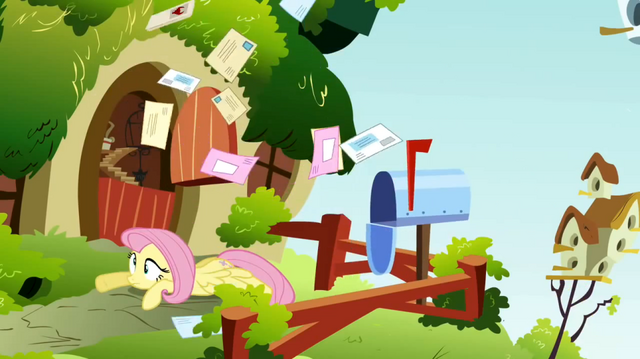 |
| The Fluttershy Doormat, by Hasbro! |
Fluttershy swears an oath to
Celestia to stop being a pushover and heads on over to the seminar. After some
ponies attending slap her around, FS manages to find a comfortable spot face-first on the ground just behind the large rabble. Iron Will, a minotaur and not
a monster, makes a testosterone-charged presentation. He’s Hulk Hogan, Mr. T,
“Macho Man” Randy Savage, Johnny Bravo and Hercule from Dragon Ball Z all rolled into one! Promising to turn anypony from a
doormat into a “lean, mean, assertive machine” and “pitying the fools” who
doubt his methods, Iron Will calls out a volunteer from the audience for a
demonstration. Fluttershy is the lucky winner and she goes up on stage. One of
the goat assistants blocks her path and after unsuccessfully trying to walk
around him, Fluttershy gets some encouragement from Iron Will… in the form of a
little nudge. FS knocks down the assistant and then proceeds, with IW’s urging,
to sort-of harshly criticize him (“um, next time get out of the way!”).
 |
| Why would Fluttershy even need "assertiveness training" with smiles that can melt the heart of anypony? |
Fluttershy proves a quick study
of Iron Will’s techniques and the next morning she is ready “to attack the day.” It doesn’t take long for the “New Fluttershy” to strike. The gardener Mr.Greenhooves overwaters FS’s plants and instead of kindly pointing out his
mistake, she gives him “the once over.” Excited by her newfound boldness,
Fluttershy heads over to the bridge into Ponyville. Bon-Bon (the mare of a thousand voices) and Cherry Berry block the bridge with their garbage carts and
their mule jokes. But when somepony tries to block, the New Fluttershy shows
them that she rocks… by dumping trash onto both background ponies!
 |
| You're making her angry, you won't like New Fluttershy when she's angry! |
Fluttershy, triumphant in the
Battle of the Bridge, moves on to Sugarcube Corner, where her friend Pinkie Pie
runs the confectionary store. Once again, a pony cuts her in line, but this
time, Fluttershy is more forceful in pointing out the injustice. She growls at
the mare to get back in line! The offender follows suit as do the rest of the
ponies already in front of FS. Now, Fluttershy is first in line! Pinkie Pie and
Rarity (who pops in out of some void) are pleased with Fluttershy’s new
attitude. But when FS misinterprets Pinkie Pie’s laughter as aimed at her, she
takes out her wrath on Pinkamena’s bowl of punch!
Fluttershy leaves and hails a
taxi. Yet again, a pony tries to take advantage of Fluttershy by getting in
before her (what a day!). But Fluttershy takes what is hers, beats up the
stallion and kicks him out. Before leaving, she declares to friends and
strangers alike, “Nopony pushes new Fluttershy around!”
Now all of a sudden, Rarity and
Pinkie Pie are not so thrilled…
 |
| Pinkamena and Rarity are shocked, shocked by New Fluttershy! |
The next morning, Fluttershy is more aggressive such that
even her disobedient animals begin to fear her. The day is hers, she says.
Nopony is going to take it from her! Not the farsighted mail pony (shades of
Derpy), who delivers the wrong letters to FS’s house. For his indiscretion, FS
stuffs him into a mailbox. Also feeling the blown fuse of new Fluttershy is a
random tourist pony looking for a watchtower landmark, who asks the pegasus for
directions. When FS drops a letter into a puddle, she takes out her anger on
the tourist, sending him flying into a hay pile.
Pinkie Pie and Rarity finally
confront Fluttershy and tell her that she’s taken her assertiveness too far,
that they’d like the old, nice Fluttershy back. But FS will not listen and
instead accuses her own friends of wanting to push her around like a doormat.
She even gives Pinkie Pie and Rarity the most unkindest cut of all (at least as
far as this show is concerned), personal insults meant to wound. Pinkamena is
the pony of very little brain, partying away her life. Rarity is “petty,” concerned
with nothing but fashion.
 |
| New Fluttershy takes it out on her friends |
Seeing her friends running away
crying appears to wake Fluttershy from her unpleasant slumber. “I’m the monster,” she says as she slowly paces back to her cottage in a manner
reminiscent of Bruce Banner hitchhiking at the end of The Incredible Hulk episodes from the 70s.
Rarity and Pinkie Pie return
later to Fluttershy’s cottage to make amends, but Fluttershy refuses to open the
door, afraid that she might turn into the Incredible Hulk again… or perhaps
just say more things she will regret later.
But the pair has bigger problems
on their hooves as Iron Will shows up to collect payment for his assertiveness
training. After attempts to stall by Rarity and Pinkie Pie meet with failure,
Fluttershy emerges to face Iron Will. However, instead of surrendering her bits
over to the minotaur, FS stands up for herself, this time without the nastiness
displayed earlier. She finds a technicality in Iron Will’s promotion she can
use: “100% satisfaction guaranteed.” Well, Fluttershy is “not satisfied” with
Iron Will’s advice, simple as that. As the minotaur is a rational creature and
not really a monster, he can do naught but walk away. Thus, FS saves the day
with no broken bones or hurt feelings!
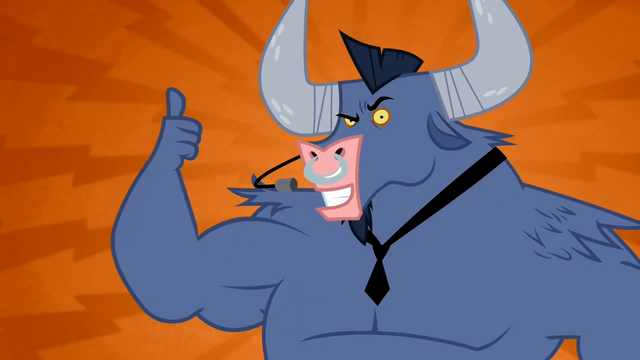 |
| I pity the fool who doesn't get all these references! |
Monday, July 16, 2012
The Oddball
[I know I wrote that the next post would be on Fluttershy, but I thought that since Mrs. Cari Donaldson was nice enough to link to my blog, I'd take "revenge" on her kindness by linking back to her blog. For as the Philosopher says:
For those who are friends on the ground of virtue are anxious to do well by each other (since that is a mark of virtue and of friendship), and between men who are emulating each other in this there cannot be complaints or quarrels; no one is offended by a man who loves him and does well by him-if he is a person of nice feeling he takes his revenge by doing well by the other. (NE, VIII, 13)
Friendship: the only kind of revenge we can support!
Besides, I didn't exactly make a Pinkie Promise.
 |
| "Looks like someone is beginning to take an interest in your handiwork." -- Han Solo, Star Wars |
Cari Donaldson, a writer for the Catholic Exchange, recently linked to few interesting sci-fi/fantasy blogs, such as David Ivies’ B-Movie Catechism (the only other dude I know who admits to watching the entire Star Wars Holiday Special). To my surprise (since I'm not big on marketing), Cari seems to have stumbled across my own blog:
Eric Mendoza, at RPG Catholic, is younger than I am, odder than I am, and smarter than I am. Also, he has a raging love for My Little Pony that is so perplexing that I fully plan on spending naptime today parsing through that phenomena.
I'd probably be boasting more than Trixie ever did by saying I'm a smart guy rather than a dummy, but I can definitely vouch for the oddness. I can understand Cari's puzzlement; it still feels strange being a Brony. I certainly didn't imagine only 6 months ago that I'd be watching a girl's cartoon about talking horses, wearing a Derpy t-shirt, trying to write MLP fan fic, and attempting to tie FiM moral lessons with Aristotelian-Thomistic philosophy.
I'll also add the sci-fi writers DGD (who's Derpy post back in February won me over to FiM), John C.Wright (leader of the Space Princess movement), Nate Winchester (currently reviewing MLP episodes), and Mike Flynn to the list. The Deej, JCW, and Nate are Bronies, but I'm not sure about the OFloinn.
***
For my next MLP philosophical post, I finally look at one of the Main Six and see the virtues and vices they exemplify. Here's a hint as who'll it be...
Sunday, July 15, 2012
RPG Catholic Update
I'll officially start catechism class this Sunday, perhaps
leading up to my confirmation sometime this November. I've already met the
catechist and some of the other students and they all seem like a nice bunch!
I'm thinking of blogging about some of the topics covered in class. We'll
see...
For my next post, I'm planning to begin my MLP
virtue/vice spotlight series with Fluttershy, the bashful pony of the Main Six,
who, in the episode "Putting Your Hoof Down," might have a few things
to teach us about the virtue that Aristotle and Aquinas refer to as
"friendliness" or "amiability."
Saturday, July 7, 2012
The Hobbit Movie Update
 |
| The poster from Comic-Con 2012 in San Diego, wish I were here |
First, the trailer for The Hobbit released last year (HT: Brandon)
Next, the animated version by Rankin/Bass from way back in 1977:
SDG's review
Finally, Brandon uncovered the weirdest take on The Hobbit yet, from 1966:
Slag the Dragon...that is all.
A Link to the Past II
I have a few posts from around the Catholic Blogosphere to
highlight today, some dealing with friendship, of course!
- From Father Dwight Longenecker comes an interesting
meditation on the biggest problem of all...lack of love, or rather, the
perceived lack of love. (HT: Waiting for Godot to Leave)
I am convinced that at the heart of all our problems is an
empty or a broken heart. What I mean is that there is a 'love lack.' Our
problems stem from the fact that we do not have enough love–total,
unconditional, over whelming love. Somewhere along the line an ache like a
hunger pang developed in our heart and we sensed way down deep that we were not
loved, or at least we were not loved enough. From that perceived lack of love
we developed our problem.
- Mark Shea tells us
about "magic" of friendship in his own way:
Friendships can be deeply transformative experiences. A deep
and true friendship with another person or a circle of persons can completely
revolutionize a person’s life — and the lives of many other people.
Friendship has been at the core of some of the greatest
human achievements of all time. Perhaps nowhere is its power more potently seen
than in the founding of the Church: It was a band of friends Our Lord sent into
the world to announce the Good News.
- Wondering what I mean when I say I'm a "Bad
Catholic"? Well, Shea, John C.Wright, and Marc Barnes help explain with
the help of Hillaire Belloc, G.K. Chesterton, and Walker Percy.
Hillaire Belloc on the Catholic Church:
An institute run with such knavish imbecility that if it
were not the work of God it would not last a fortnight.
- The Thomist James Chastek shares his philosophical
bugbears (or pet peeves). I have to admit, I might have committed quite a few
on his list in my youth and inexperience. As if the readers who remember my
quote from Aquinas on "avoiding small errors that might have big consequences" need any more reminding, here's a clip from MLP that shows what might happen if
you ignore Chastek's advice:
Just as the errors of modern philosophers like Descartes and Kant brought down the house of A-T metaphysics, Derpy Hooves’ clumsiness brings down Ponyville's city hall!
Friday, July 6, 2012
Classical Theism: No Laughing Matter
What's a good way to know that you're dealing with the God of classical theism (the God of Aquinas) as opposed to another conception, such as the personalist God of neo-theism, which dominates philosophy of religion circles today? Well, you could tackle hugely important and complicated theological/philosophical issues like the classical view of divine simplicity. My friend Alfredo has plenty to say on DDS here. The Christian film critic and fantasy writer Jeffrey Overstreet, however, suggests another approach:
When Terry Gilliam's Monty Python cartoons portray a big-bearded, grouchy God in the clouds, we laugh because we have seen such insufficient representations of God before. We're laughing at our own feeble illustrations of someone too mysterious and powerful to be illustrated. In short, we're laughing at ourselves.
But try to make a joke at the expense of God Himself and we'll be hard-pressed to come up with anything funny. It just doesn't work. That's because there's nothing wrong with God. There's nothing out of place. Those who try to make fun of God end up exposing their own limited views of Him. They're usually driven by pride, cruelty, anger, and outrage, which ultimately turn the jokes back against the jokers, revealing them to be arrogant and misguided. Likewise, any attempt to degrade Christ through humor reveal the lack of proper reverence and respect in the joker.
-- Through a Screen Darkly, 235
Monday, July 2, 2012
Discord: The Most Dangerous MLP Villain?
[I'll definitely need to expand on these thoughts, but
here's a quick and rough post on the villains of FiM.]
As I 've mentioned before, DGD regards the villains of
MLP:FiM as pushovers compared to G1 antagonists. However, I've been wondering
if the villains of FiM can be considered formidable threats from a different
point of view, I mean, as threatening the heroes in a different manner than
simply being satanically wicked both in look and act like Tirek. Since the main
theme of FiM is friendship perhaps what Lauren Faust intended to do is have the villains try a new approach:
fomenting internal conflict between the Mane 6 and indeed all of Equestria,
instead of simply going around destroying everything and enslaving everypony.
Who is the greatest villain we've encountered so far in two
seasons of MLP: FiM? Princess Luna? Well, she did threaten to stop the sun from
rising on two occasions, but she only does so out of a misguided desire for
love; she didn't exactly set out to destroy Equestria. Besides, as DGD pointed
out to me, the most dastardly thing she does in the first two episodes is cut
off one half of a dandy dragon's mustache. Gilda? She's a jerk. Trixie? Well,
besides her "Great and Powerful" traveling show BS, she didn't
exactly pose too much of a threat to peace. Oh, yeah, she can sometimes inspire
overzealous fans, such as Snips and Snails, from inadvertently bringing on a
Ursa Minor attack. Queen Chrysalis? Well, she did come close to taking over
Equestria and emptying it out of all love. But let's face it; Chrysalis only
made it that far due to Princess Luna choosing a bad time to oversleep.
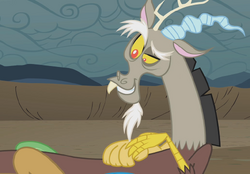 |
| Discord: Enemy of friendship and sower of conflict |
Discord, on the other hoof, seems to be the biggest threat
to the harmony of Equestria in "The Return of Harmony" episodes, for he seeks nothing more than to bring chaos,
discord between the ponies. Instead of directly fighting the Mane 6, he turns
the ponies against each other. The Elements of Harmony begin to break up before
our very eyes, while Discord simply kicks back on a lawn chair watching the fireworks fly. Even Twilight, the element of friendship, briefly considers never seeing
her friends again. Discord wants, in other words, the complete opposite of
friendship, enmity, to prevail throughout the ponyland.
As the philosopher Alasdair MacIntyre tells us, for Aristotle
(and his teacher Plato), the greatest evil than can befall any society, whether
Athens or Equestria, is conflict:
Aristotle's belief in the unity of the virtues is one of the
few parts of his moral philosophy which he inherits directly from Plato. As
with Plato, the belief is one aspect of an hostility to and denial of conflict
either within the life of the individual good man or in that of the good city.
Both Plato and Aristotle treat conflict as an evil and Aristotle treats it as
an eliminable evil. The virtues are all in harmony with each other and the
harmony of individuals is reproduced in the harmony of the state. Civil war is
the worst of evils. -- Alasdair MacIntyre, After Virtue, 3rd ed., 157
I should add that Aristotle considers friendship to be one
of most, if the not the most, important virtues for the harmony of society, for
a society united in the pursuit of the common good. If I didn't know any
better, I'd say that Equestria, once free of Discord, fits the good society as
envisioned by the Philosopher, assuming he could get past the whole talking
horse thing. Or as the Ponysopher Twilight Sparkle tells us, "I'll tell
you what we've learned Discord. We've learned that friendship isn't always
easy. But there's no doubt it's worth fighting for."
 |
| The harmonius society as it might appear to Plato and Aristotle |
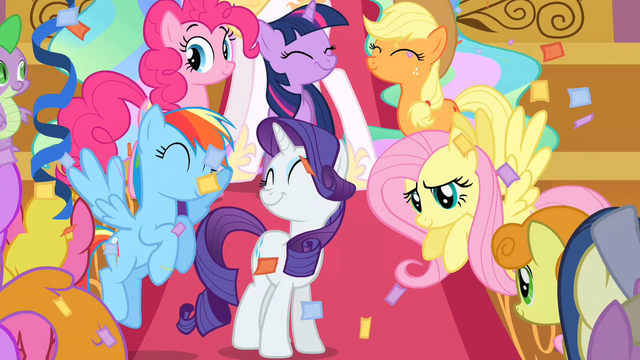 |
| The harmonious society ponified |
Subscribe to:
Comments (Atom)




